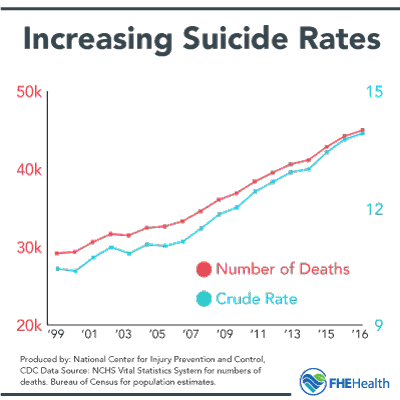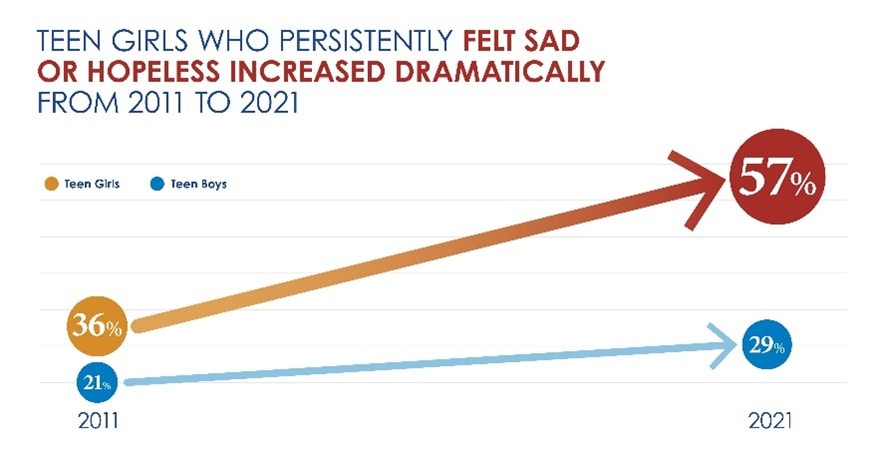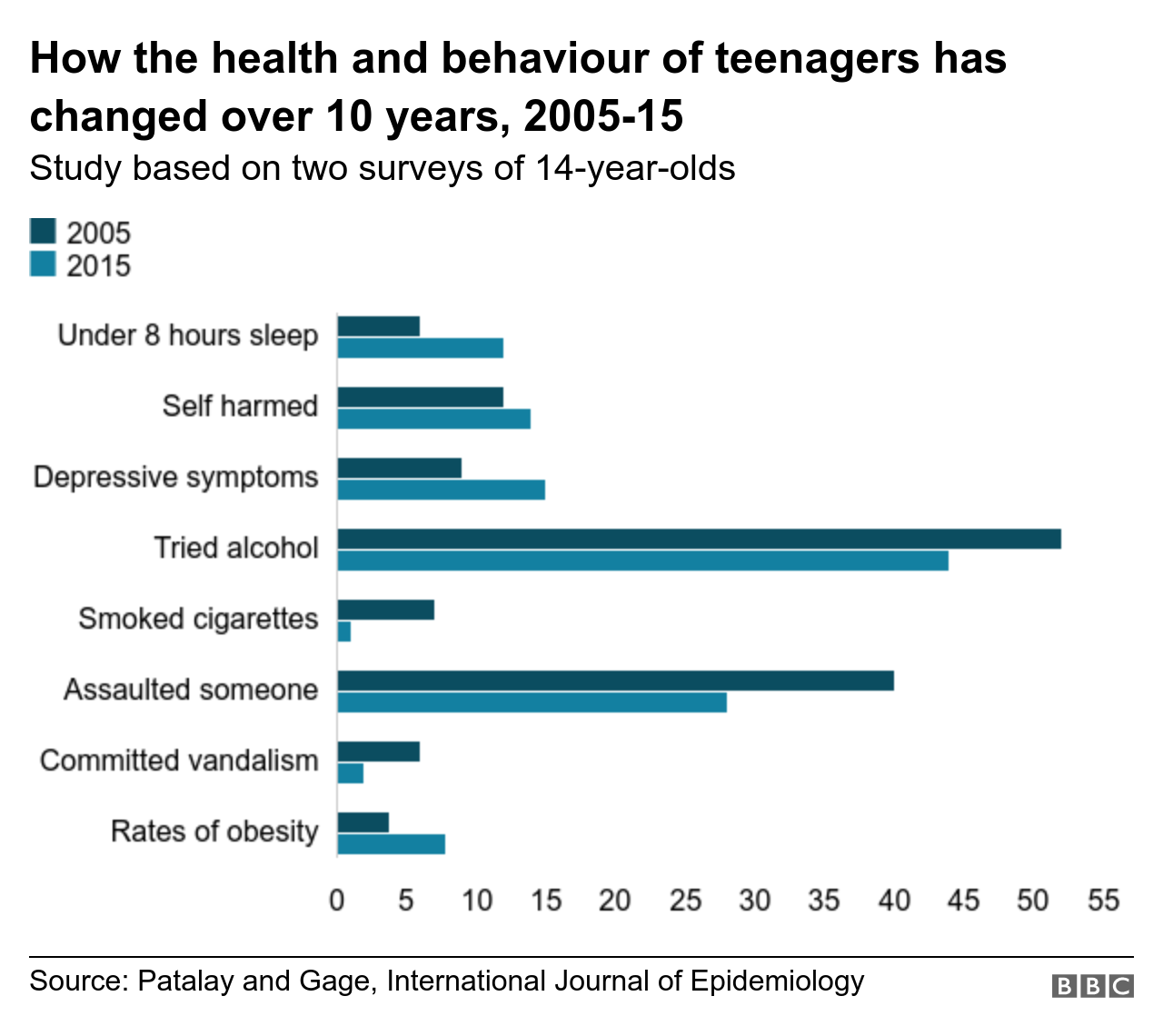I was just reading
an article, which was both surprising and sadly disturbing.
On Monday, February 13, 2023, the Centers for Disease Control and Prevention (CDC) in the United States released a report on the mental health of U.S. teens. It noted that over 40 percent of high school students experienced persistent sadness and hopelessness.
“Although we have seen worsening trends in mental health for young people over the last 10 years,” stated Dr. Kathleen Ethier, director of CDC’s Division of Adolescent and School Health (DASH), “the levels of poor mental health and suicidal thoughts and behaviors reported by teenage girls are now higher than we have ever seen.”
With all the problems we face, it's sad that many youth face this as well.
What do you think are the reasons or contributing factors for this?
It's not that simple. There are many forms of negative emotion. It can't be properly diagnosed without further inquiry.
Is your life bad? Or are your depressed?
Do you have friends? Family? Relationship?
Do you have a plan for your future?
How do you spend your time inside/outside of school?
Are you free of chemical dependencies?
Are you engaged in the community?
If your life is not bad, then you have to ask if there is a biochemical issue.
Proper sleep, proper diet, proper sunlight, proper exercise, environment.
It's important to note that girls are more likely to report depression or seek treatment for depression. Also, depression in teens has been consistently on the rise since 2011 - it's not a new trend. Covid probably only exacerbated an existing condition as opposed to being the underlying cause.
This data suggests that violence and chemical abuse went down, which would mean they are unlikely to be the primary cause of the trend in depression, but notice that 14-year olds are getting less sleep and a lack of sleep can be directly connected to an increase in depression. Almost all teens are sleep deprived. Note: teens are far more likely to sleep with their cell phone nearby, which is correlated with lower quality sleep. Also notice the incease in obesity. Obesity is correlated with improper diet and exercise.
Addressing proper habits might be a possible solution to the depression trend, but we shouldn't rule out other causes because there are many potential underlying causes. I would be wary of attributing bad news in the media as a primary cause. While watching too much bad news can be depressing, it is also the case that a person who is depressed will be more likely to describe events in the environment as being depressing. That said, teen preganancy has decreased significantly since 1990 and more people today say they don't want to have children because of the state of the world that they would be bringing a child into. One way to combat depression is to spend (90 minutes of) time every day writing an autobiography examining your past experiences and talking about your plan for the future.
_______________________________________________________________________
TL;DR: Depression has many causes. It's not clear what the dominant underlying cause is, but one significant way to decrease depression is to improve life habits in terms of eat-sleep-play. Establish healthy relationships and a plan for the future.




